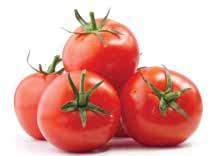YOUR INDUSTRY
PUKEKOHE’S UNIQUE GROWING CONDITIONS WORTH FIGHTING FOR Words by Andrew Bristol. Photographs by Trefor Ward
Bharat’s mother in the field
Bharat says it all comes back to the soil
Bharat Jivan, whose family has been growing vegetables in Pukekohe for 70 years, says Pukekohe’s unique growing conditions are worth fighting for and retaining.
qualities. That’s thanks to where and how they are grown.”
“This is premium growing land that needs to be retained for vegetable production, but some people think we should build houses on it. Auckland’s so lucky that vegetables are grown so close to it, however, that did not happen by chance. This land was identified as fertile soil. If you go south of Pukekawa, the soil changes. Yes, potatoes are grown down there but you don’t get the premium price for them that you get for Pukekohe-grown potatoes. They also need washing because retailers don’t want a dusty product. Washing’s fine but it reduces shelf life and makes the potatoes more prone to greening.” Bharat says they can plant potatoes as early as 1 June because the soil is frost-free. “Pukekohe is renowned for these potatoes. Also, when Ohakune runs out of washed potatoes and carrots in about October, this region takes over and fills the gap. “It’s all down to soil type and latitude. You can’t just grow vegetables anywhere. “We’ve also got customers in Europe who only want onions out of the Pukekohe region because of their long-keeping 16
NZGROWER : MARCH 2021
Bharat – who is 50 – says he’s only a caretaker of the land. He came onto the family farm 20 years ago and considers himself lucky because his son – who has just finished university – is happy to carry on working on the farm. Bharat suspects that his brother Pravin’s son will do the same. Jivan Produce grows onions – 70% for export with the rest for New Zealand – potatoes, lettuce all year round for fresh consumption and processing, and pumpkin and broccoli through the winter. Bharat says “it’s getting really hard to make a dollar.” “We used to crop 80 acres and make a comfortable living off it. Now you have got to have scale and with that, you have to have staff. “We employ 12 or 13 people full-time, plus casuals and contractors for seasonal work. That’s been really challenging this season but we’re getting by. “More and more people want full-time work. That’s one of the reasons why we now grow broccoli in the winter. It keeps the staff going and it’s good for the ground.” Bharat says that when he joined the business, he worked out that they needed to be caring for the soil a bit more. “I started applying compost back then and now we do that on an annual basis. We also grow mustard, oats and barley



























